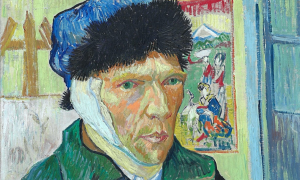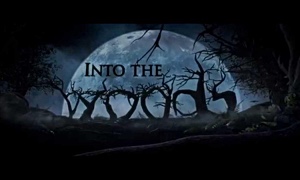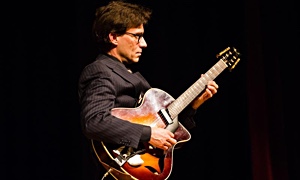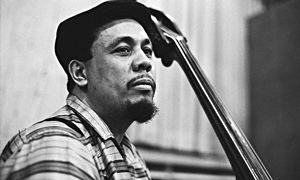Home » Jazz Articles » Shrinktunes » Jazz, 9/11, and Healing
Jazz, 9/11, and Healing
[Jazz] is a multi-layered experience that encourages contemplation and the search for understanding.
One horrible day has suddenly exposed just how disrespectful our media habits are to the human spirit: how eager we've been to feast on special-effects murders and video-game viciousness, how we've salivated over the latest private troubles of public people, how cynical we've been to make heroes out of "musicians" who spit poisonous rage into the microphone.
Even the bass-bullies, those drive-by thumpers, are quieter these days. Lately everyone is tiptoeing, showing more kindness and care, their priorities abruptly shifted with the sudden, terrible crashing of buildings, planes, and lives. There could be no ruder awakening. But even a brutal and involuntary awakening still counts. For once, and for however long it lasts, the world is focused on what can soothe and unite us, rather than its usual shrill and greedy vibe, as jangling and artifically energizing as caffeine. And in the search for healing, jazz has much to offer.
For one thing, jazz isn't a music for haters. "Jazz people are peaceable," Dizzy Gillespie once said, "they're too busy trying to figure out the music." This is a music that rewards such figuring out, a multi-layered experience that encourages contemplation and the search for understanding. Classical music is heady stuff too, but it doesn't revere the individual player to the same extent; while its stars are idolized, they have little freedom to rearrange the score. In contrast, jazz musicians are admired for doing so, and for having the imagination and courage to try.
This freedom is truly democratic, a diversity that is natural, rather than legislated or self-consciously imposed. Jazz embraces an infinite range of voices, backgrounds, ethnicities, ages and philosophies into a fellowship with a common goal: the making of wonderful music. Achieving this goal requires mutual support and respect and truly listening to each other; the player who makes only narcissistic noises finally touches nobody else. Good improvisation involves a communication style well worth emulating (just imagine how things would improve if Congress worked together like a top-level trio).
Jazz encourages a healthy mindset in its audience as well, since the full enjoyment of improvisation requires a certain degree of cognitive flexibility. The listener must be willing to loosen his moorings a bit, let go of the familiar and predictable, and truly open to someone else's vision. At the very least, he cannot seize up at the sound of something foreign or new; at best, his ears will keep growing, with commensurate expansion of mind and heart.
Finally, one of the singular wonders of jazz is its infectious joy—the grins and musical jokes, the delight of surprise, the bluesy energy that can leech out the pain and the swing that drives it away. To be participant or witness when a band is really cooking, to share that magic when everything is right, is something that's more precious than ever; transcending tragedy and terror, it lifts the spirit and reminds us how much good is possible in the world.
Hey, maybe people will even stop snarling over which jazz is "real" and which isn't, and concentrate on delivering the special sounds that celebrate the individual and build community at the same time. What a great example that would be...
< Previous
SFRAGMENTS:* Notes on Barbara Sfraga'...
Next >
Jobim, Master Therapist
Comments
Tags
For the Love of Jazz
 All About Jazz has been a pillar of jazz since 1995, championing it as an art form and, more importantly, supporting the musicians who create it. Our enduring commitment has made "AAJ" one of the most culturally important websites of its kind, read by hundreds of thousands of fans, musicians and industry figures every month.
All About Jazz has been a pillar of jazz since 1995, championing it as an art form and, more importantly, supporting the musicians who create it. Our enduring commitment has made "AAJ" one of the most culturally important websites of its kind, read by hundreds of thousands of fans, musicians and industry figures every month.






















